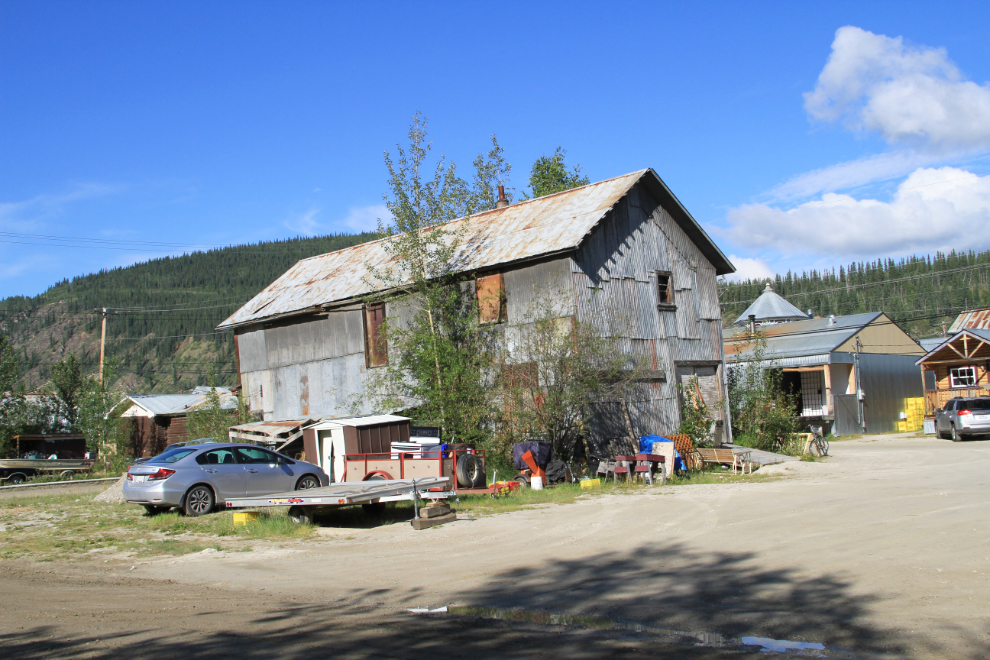Yukon RVing: Dawson City
As slow-paced and relaxing as this trip was, there’s never enough time. After a leisurely morning and lunch at Tombstone Mountain Campground on Monday, we started the 113 kilometer (70 mile) drive to Dawson City just before 1:00.
We stopped for a photo at the Welcome to Dawson sign, then our next stop was at the RV wash at the Bonanza Gold RV Park on the outskirts of town, to get the Dempster Highway’s dust-settling calcium chloride off the rig.
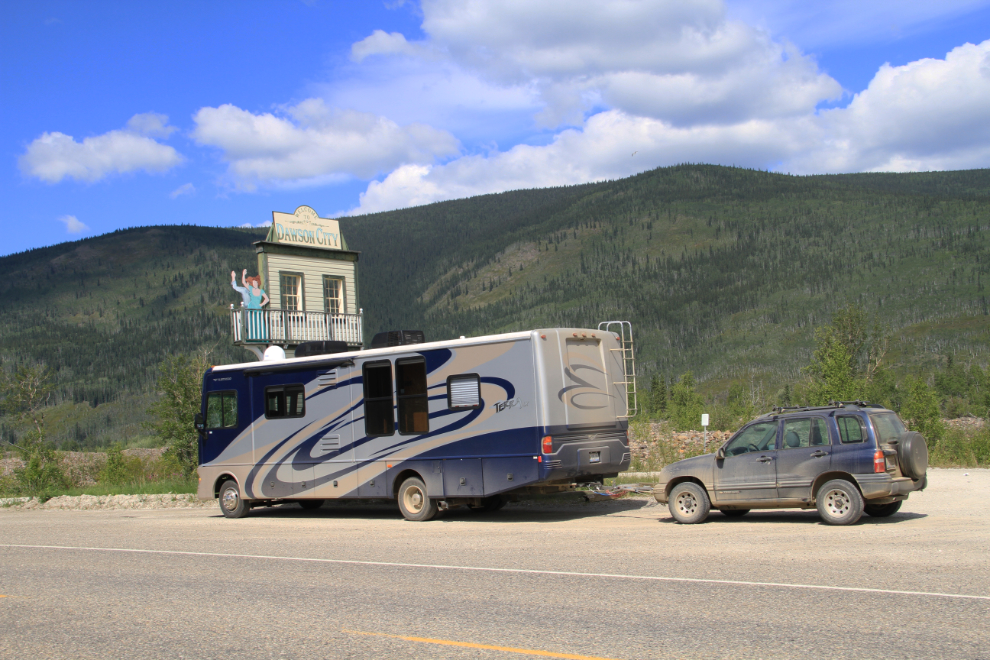
We had decided to stay for 2 nights at the Gold Rush Campground because of its downtown location so we could walk everywhere. The park wasn’t too busy yet when we arrived, and we were soon set up at site #21, which isn’t a pull-through site, but we were unhooking the Tracker anyway. With 30 amp power, sewer, water, and Internet, it cost $44 per night with tax.
We then set out exploring, with our first destination being the dyke along the Yukon River. We never go there without thinking of a tour company owner who became a close friend of both Cathy and I over the many years I guided his groups. The dyke was the place that Kevin Maher would always go by himself to unwind when we reached Dawson. Kevin died a few weeks before he and his wife were going to be with us when we got married on the beach in New Zealand, but we think of him often.
The first local we met on the dyke was this chick. It was Bella who spotted it first, and she was right up sniffing it before we realized what she had found. Luckily she didn’t touch it.
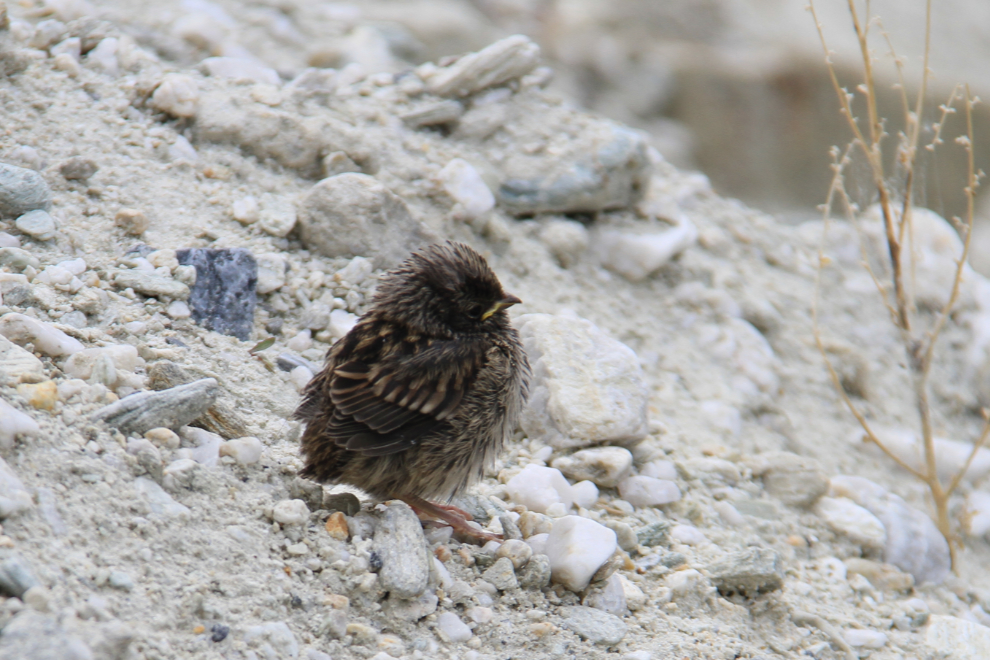
One of the chick’s parents (a white-crowned sparrow, Zonotrichia leucophrys) was about 20 feet away, quite distressed.
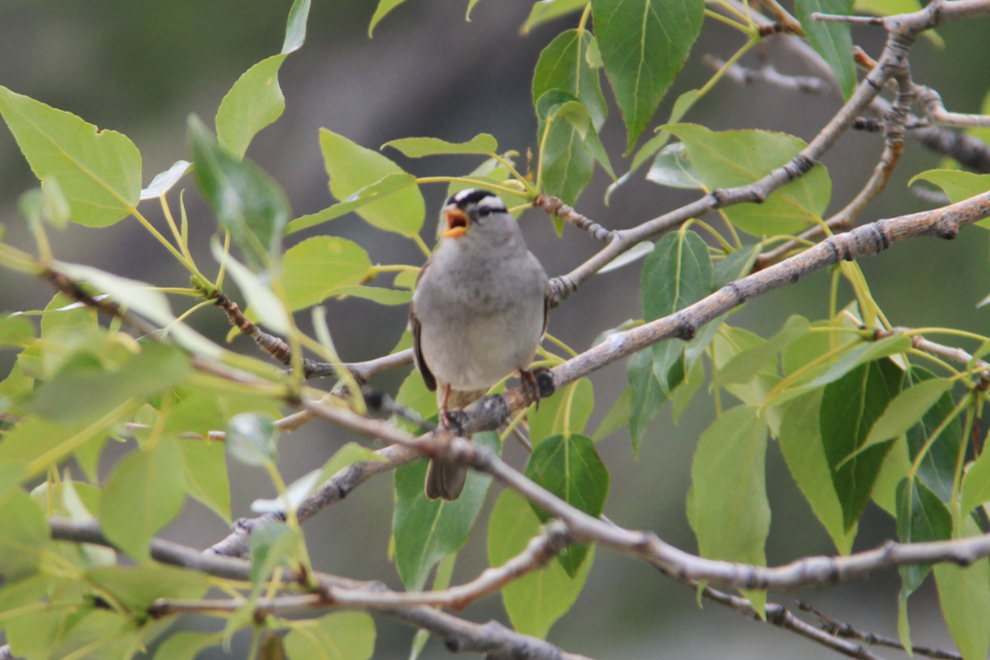
One of the reasons we wanted to get back to Dawson was to have another great meal at The Drunken Goat Taverna. We couldn’t decide which dish(es) we wanted, so went for their Poikilia, which has a bit of each of their Greek favourites, including ribs, lamb chops, grilled chicken, spanokopita, and tiropita, for $67.95 – it was all amazing! It filled us both up and we had some take-home for lunch the next day as well.
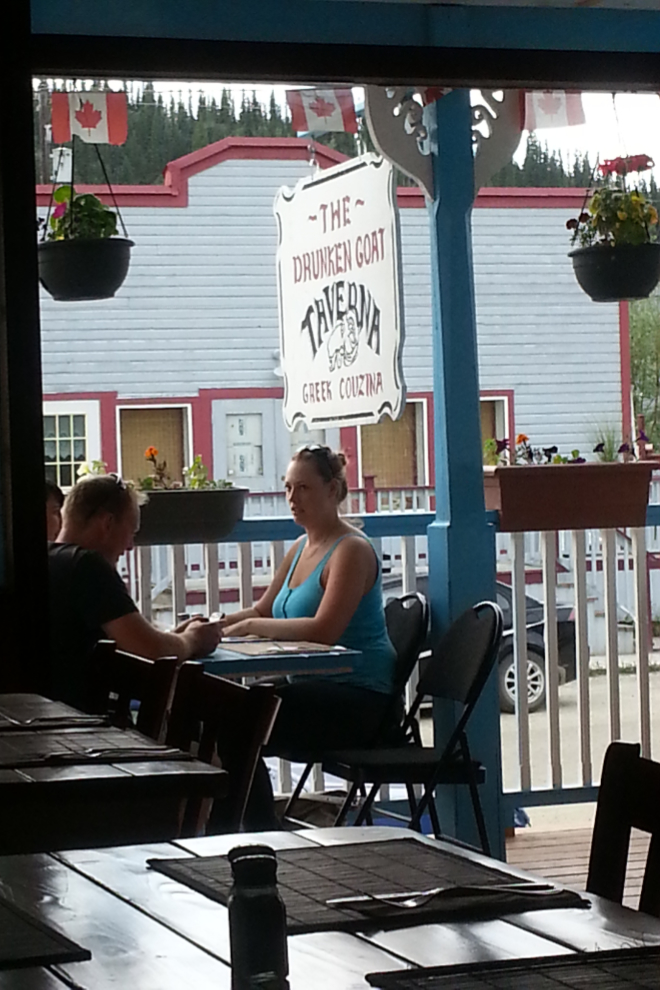
After dinner, we walked back to the campground, got the dogs and the Tracker and headed up the Midnight Dome, arriving just before 10:00 pm. This couple was capturing the beautiful light and the view down the Yukon River with their selfie stick 🙂
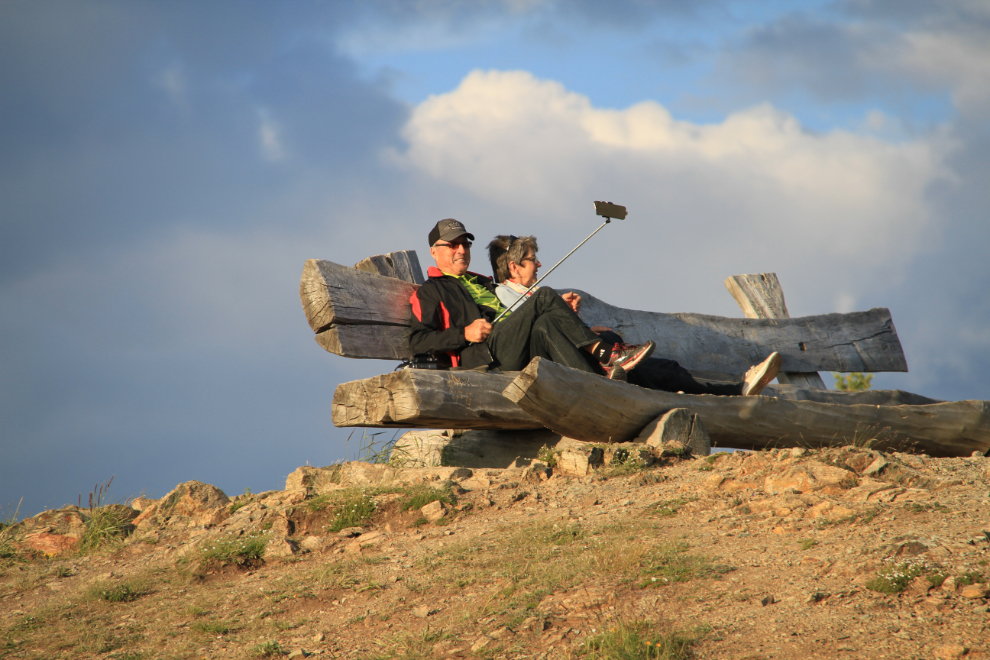
Two mountain bikers started the steep descent through the forest right at 10:00 pm. The second had a GoPro camera on his helmet – I’d love to see that video!
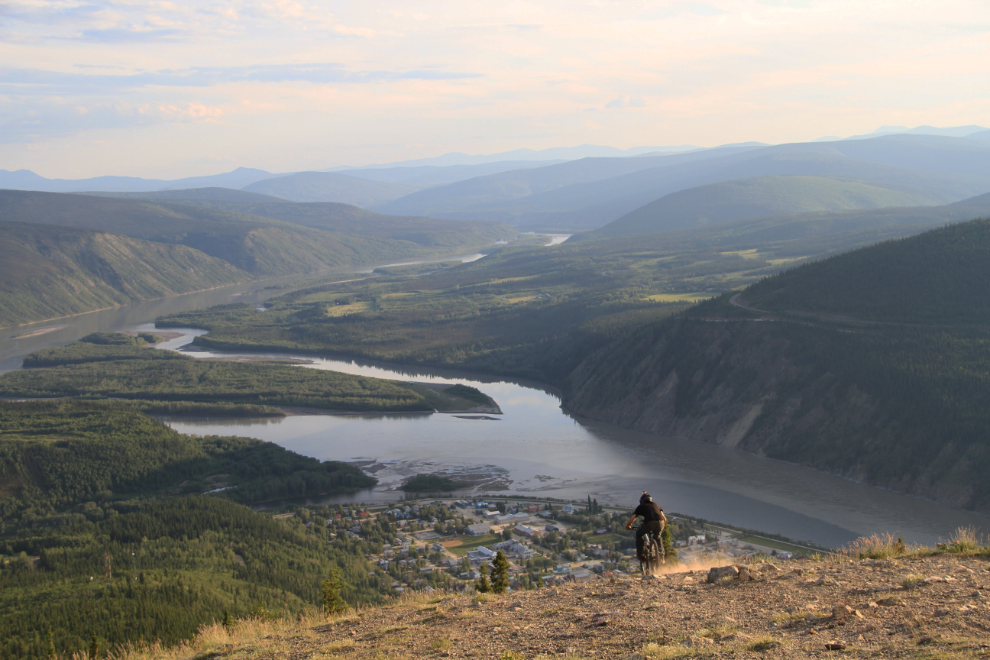
Here’s a look at our extremely tight campsite at 06:00 on Tuesday – quite a contrast to what we had at Tombstone!
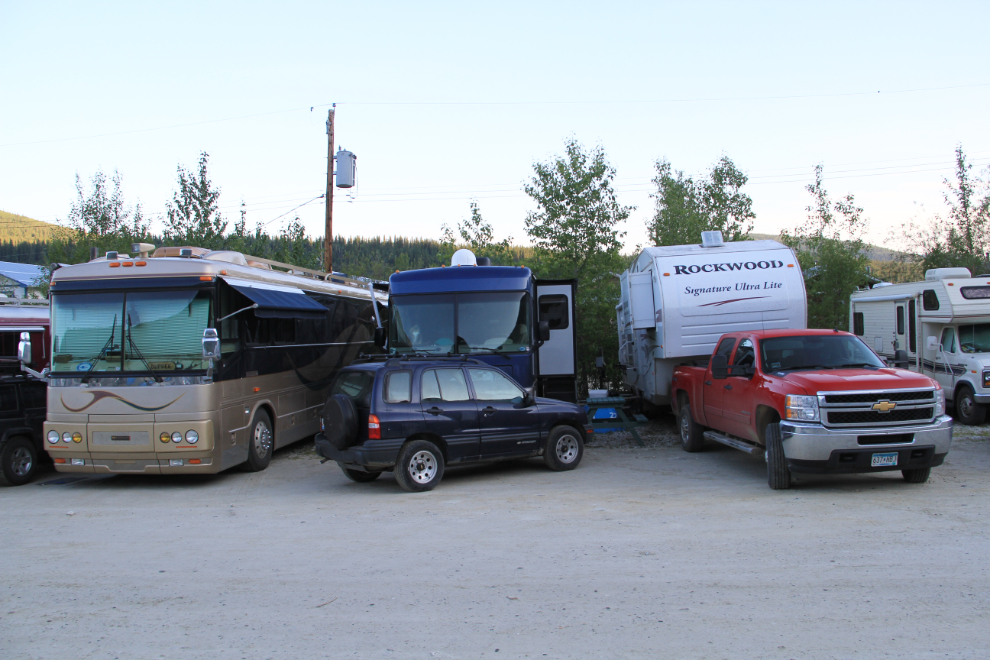
Tight spaces or not, we were pleased with Gold Rush Campground. The location was perfect for our purposes this time – this is the view from the office.
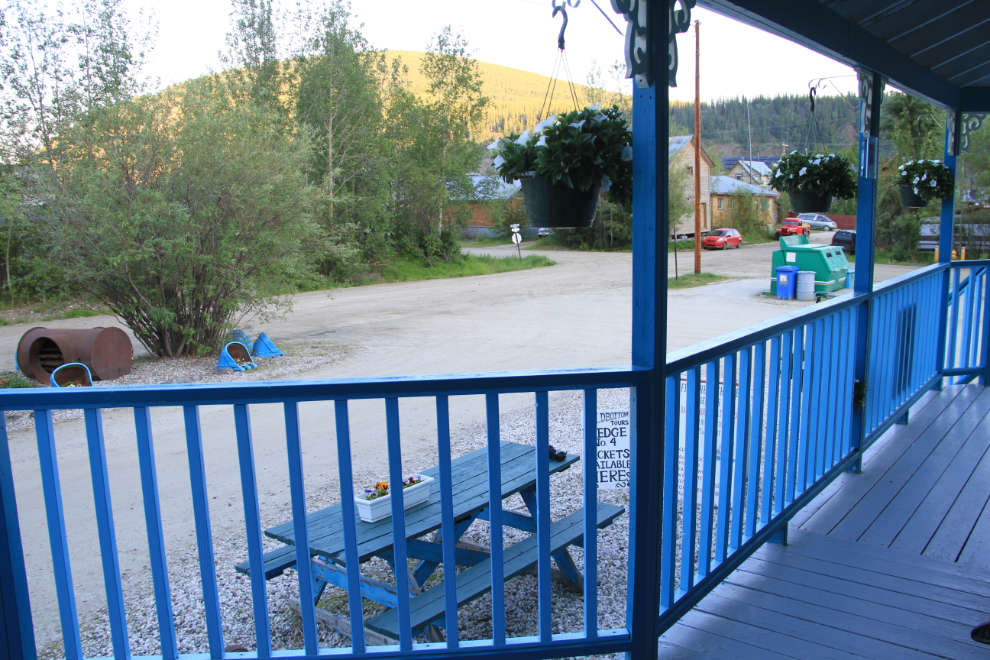
All the campground facilities were spotlessly clean.
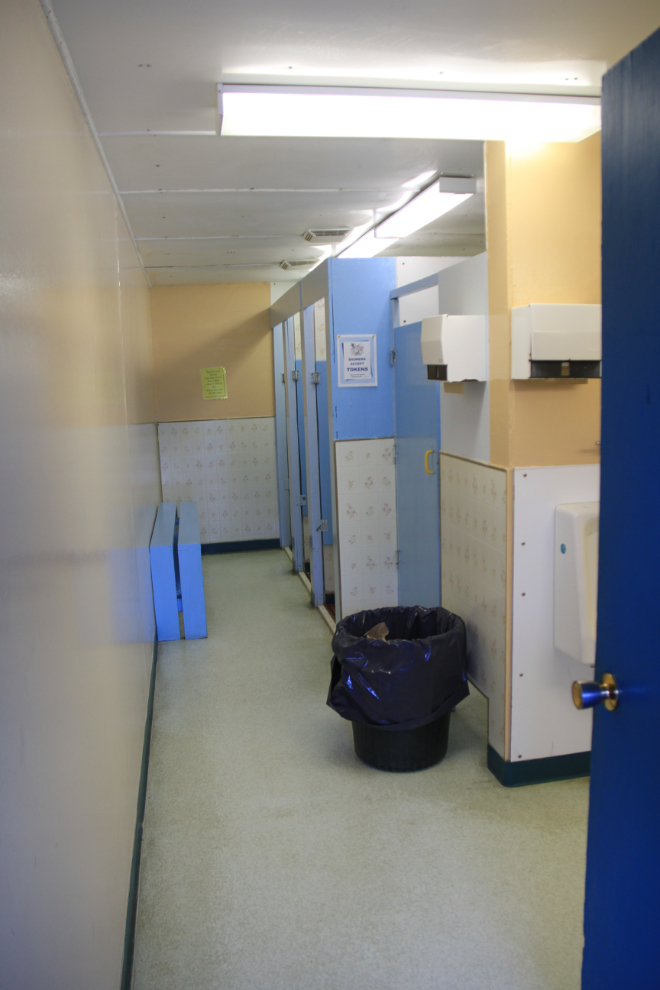
All 83 sites were taken by about 6:00 pm on Monday night. This was the view across the park from the office just after 06:00.
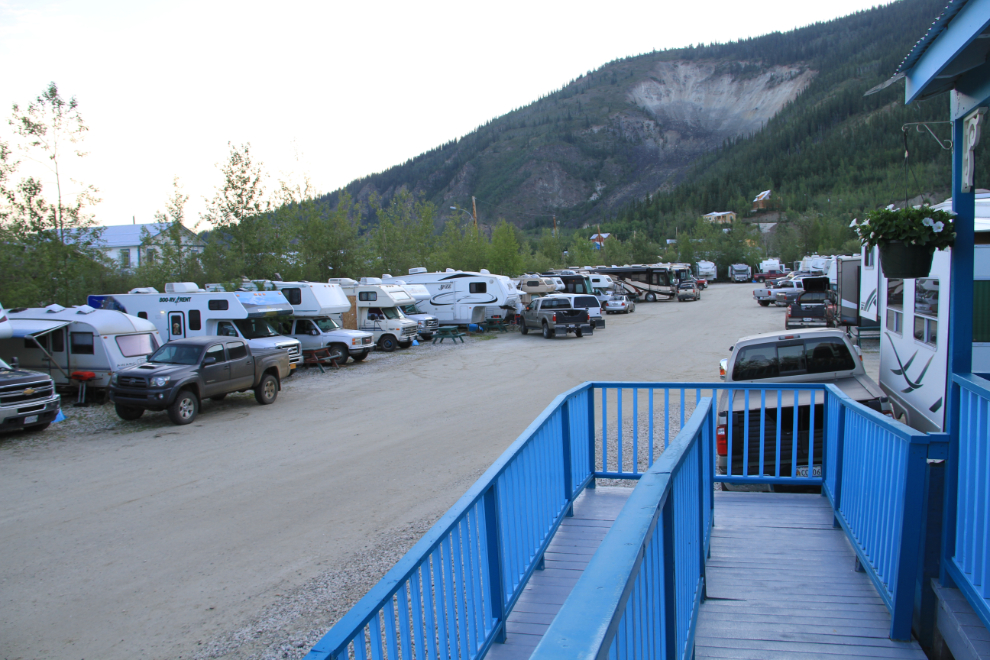
Ahhh – another relaxing morning “at the cabin” 🙂 Molly still amazes us both – she absolutely loves the RV.
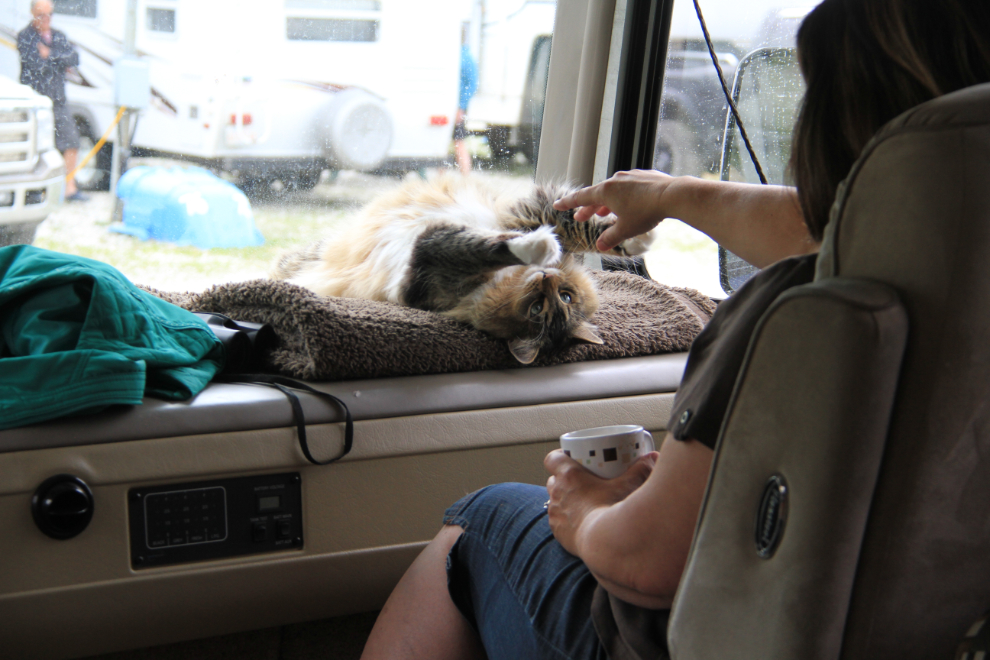
Our main plan for Tuesday was to do a circuit of the Klondike gold fields, up Bonanza Creek, over King Solomon Dome and down Hunker Creek back to the North Klondike Highway. We had only gone a couple of miles up Bonanza when we met this gorgeous silver fox – that tail is amazing! The silver fox is just a colour phase of the red fox, and there can be partial colour changes that we call cross foxes.
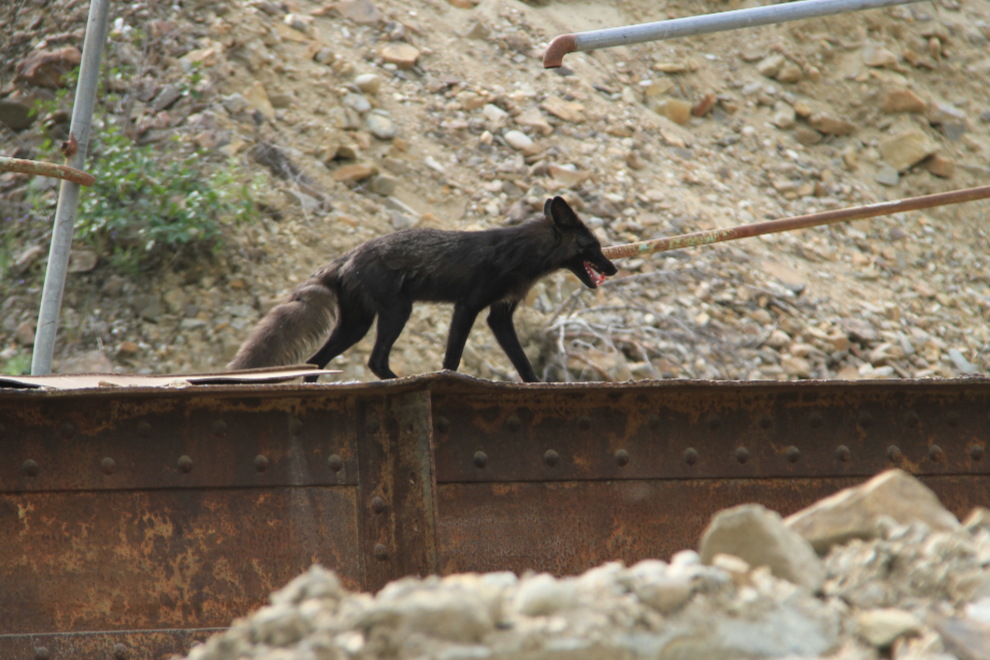
Our first stop was Claim 33, just to say “hi”. Over the years I’ve stopped there probably 100 times with tour groups so they could try their hand at gold panning. I always enjoy seeing even rather jaded travellers get a bit of “gold fever” when they see some little flakes in the bottom of their pan 🙂
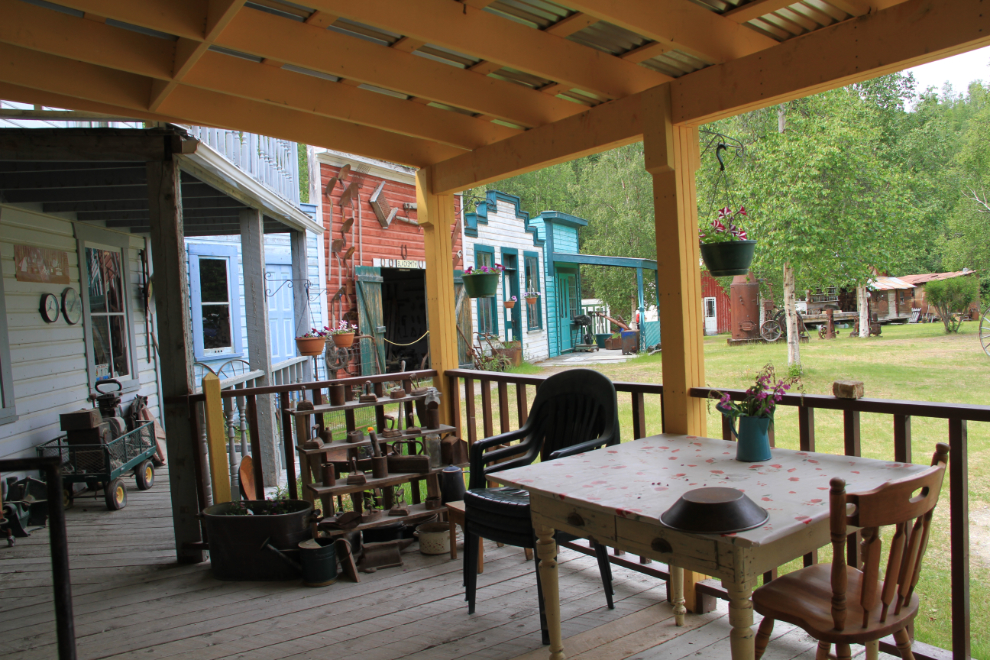
The Jerry Bryde Klondyke Mining Museum part of Claim 33 has lots of wonderful artifacts, including this 1916 McLaughlin Buick touring car.
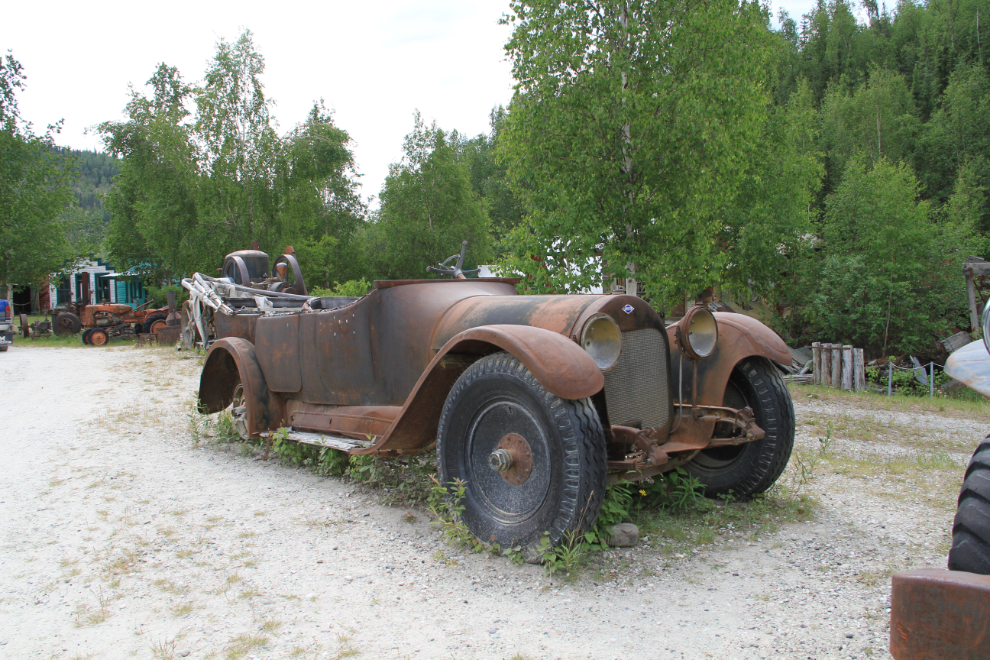
We stopped next at Dredge #4, not knowing what the situation was this year due to Parks Canada cutbacks. A private contractor is doing the tours now, and the clerk was happy to stamp our Explorer’s Passports while the resident husky took a siesta 🙂
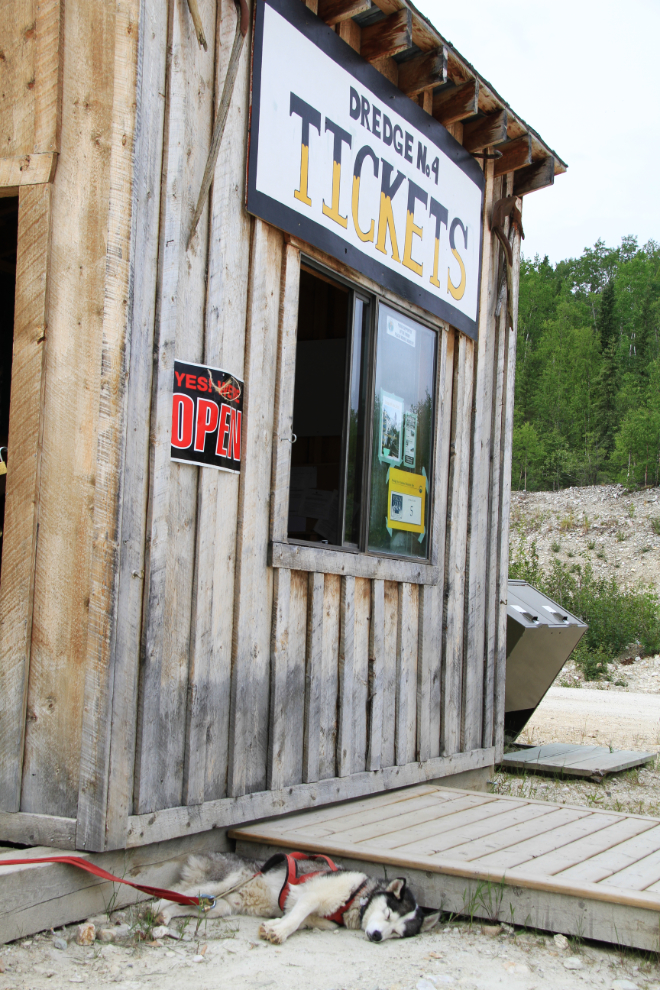
Because of its size, the best photos of the dredge are taken from the hill across the road, but I did it the lazy way by taking 2 photos and using panorama-making software.
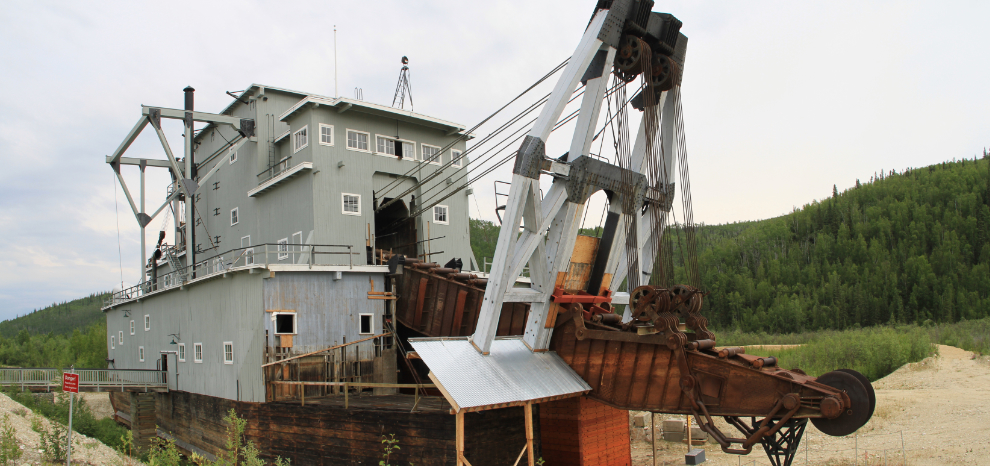
The loop that we were driving used to be signed, but now you just have to know where you’re going. It would be tough to guess which of the dirt roads is the right road now, unfortunately. On the long climb up to King Solomon Dome, I stopped to get a photo of this funny claim marker. “Stillhopin Mine” – the truth for many miners.
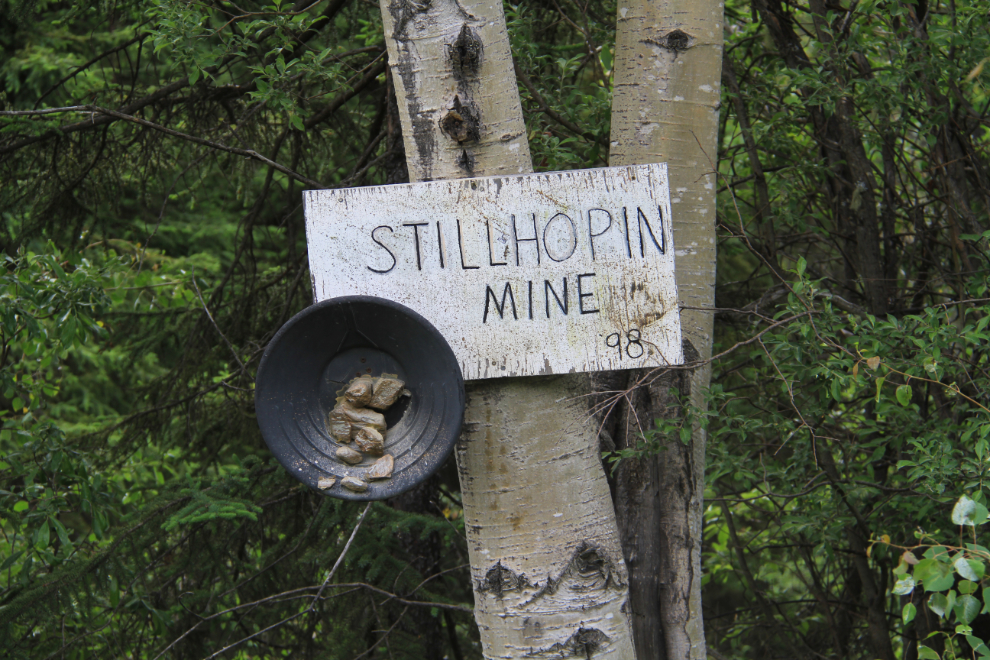
The Ridge Road, the Yukon’s first wagon road, was built in 1899 by the new Yukon Government. The road was built above the heavily populated but marshy creeks. Bonanza miners called it “the parachute road” because it was so steep, and fought its construction, but despite its issues it was valued by miners on the outlying creeks. During 1899, it was the only freight route from Dawson City into the gold fields. In 1901, an efficient road network was constructed in the valleys and this section of the road to Dawson was abandoned. The part of the old Ridge Road that connects with the upper end of the Ridge Road Heritage Trail and leads over the King Solomon Dome is still used today.
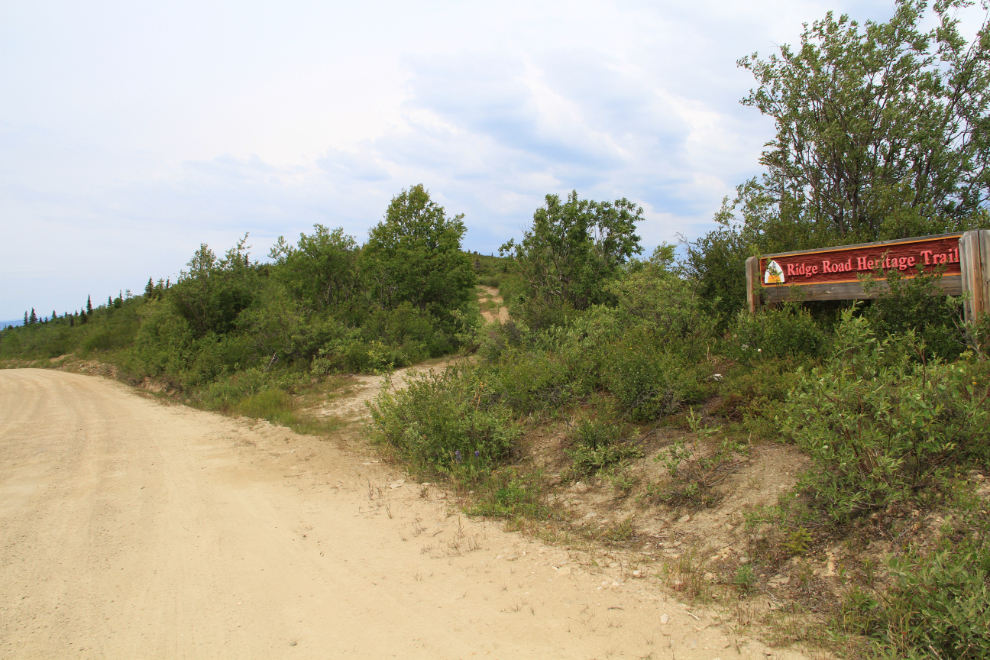
This map at the trailhead shows our circle route as well as the trail, which I really want to hike some day soon.
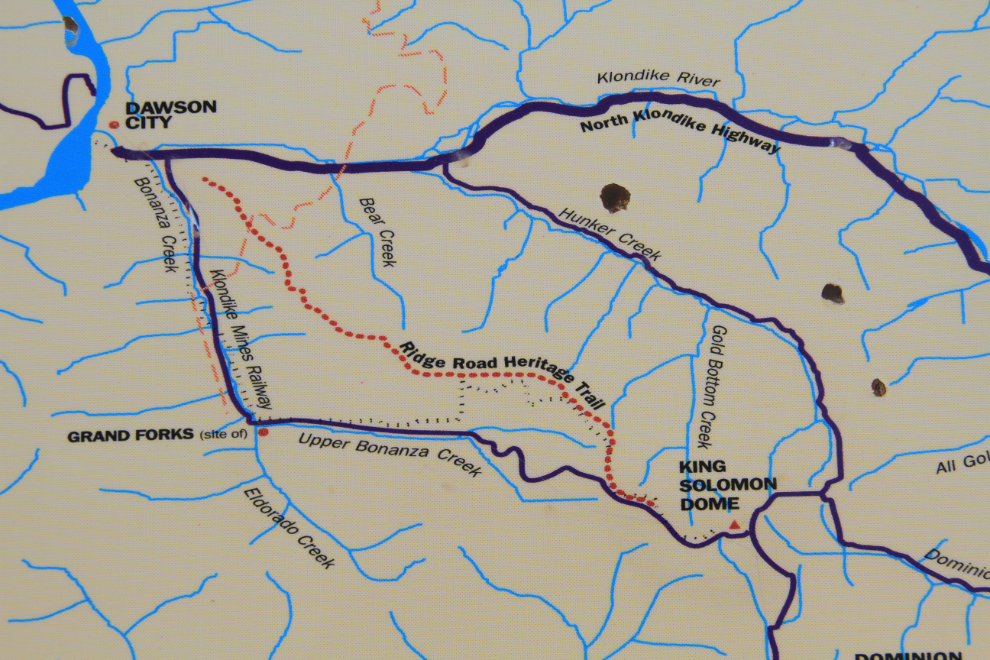
This rest area near the trailhead was a wonderful spot for a little picnic. It gave us a panoramic view of some pretty strong thunderstorms headed our way, so we didn’t dawdle, though.
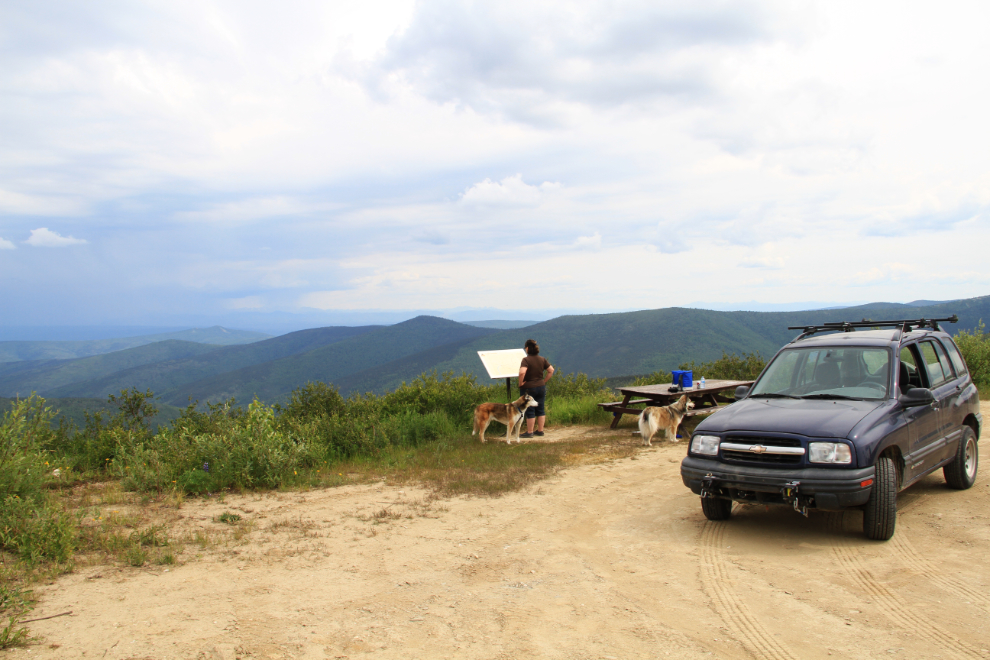
Looking back at Upper Bonanza Road that we had come up on the right, with Quartz Creek road dropping steeply down on the left.
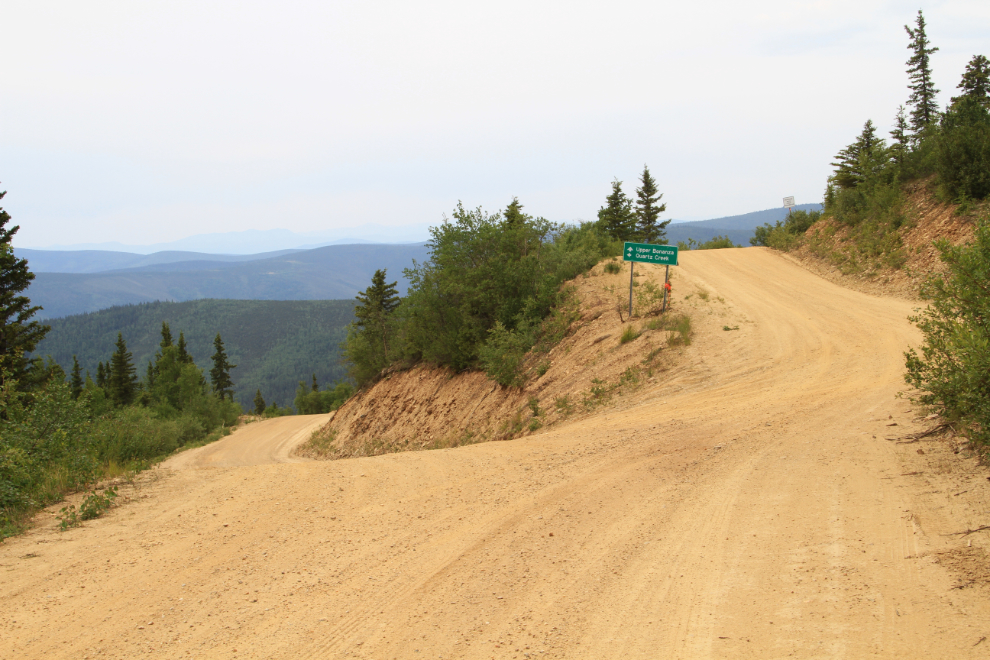
Because of the approaching storms we didn’t stay long at the top of King Solomon Dome, but the wildflowers were gorgeous.
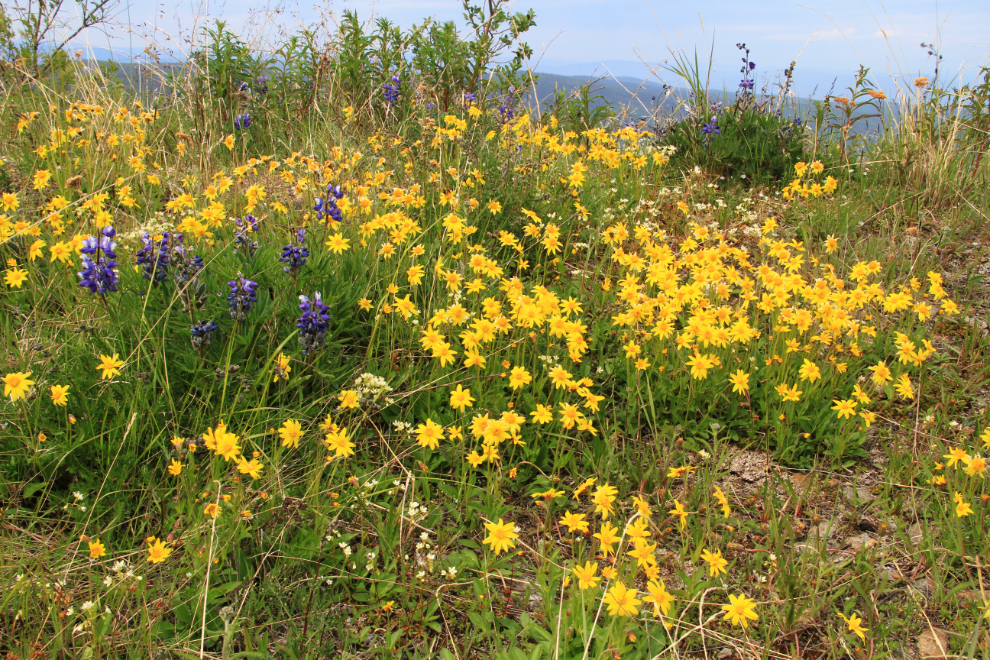
Back in Dawson, we parked the Tracker at the campground, let the dogs into the rig for a nap, and Cathy and I went back to exploring. Probably the only site in Dawson that I’d never seen was the Dawson City Firefighters Museum, so that was the first stop.
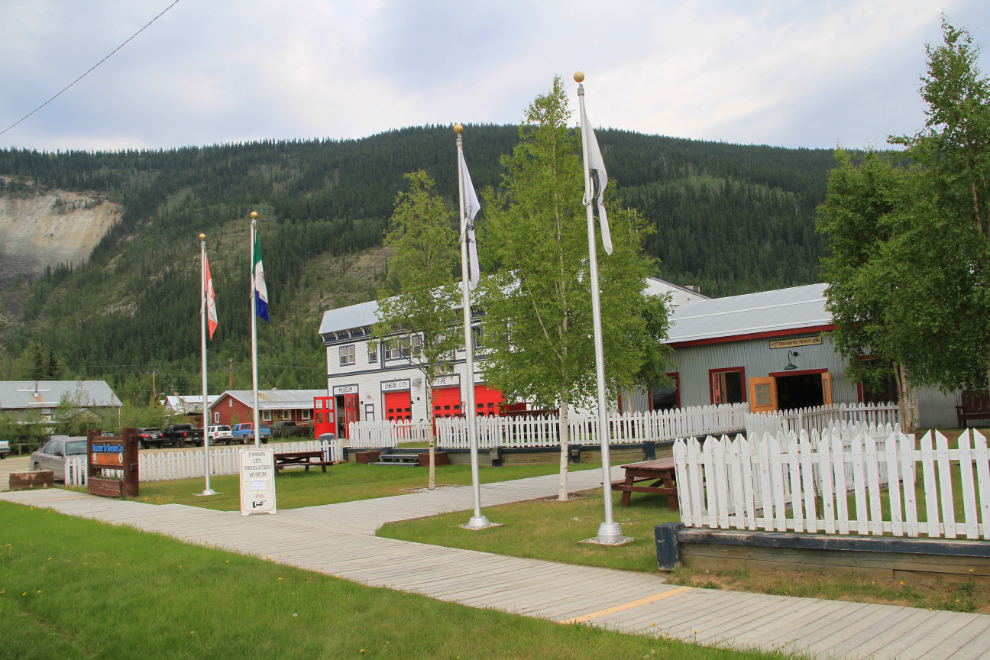
We started in the annex. This Two Ton Caterpillar, purchased in 1929, was used to tow a variety of equipment including the steamers during its years of active service. Those jobs had previously been done by horses, who were then retired. The little Cat will still start up with a little persuasion, they say 🙂
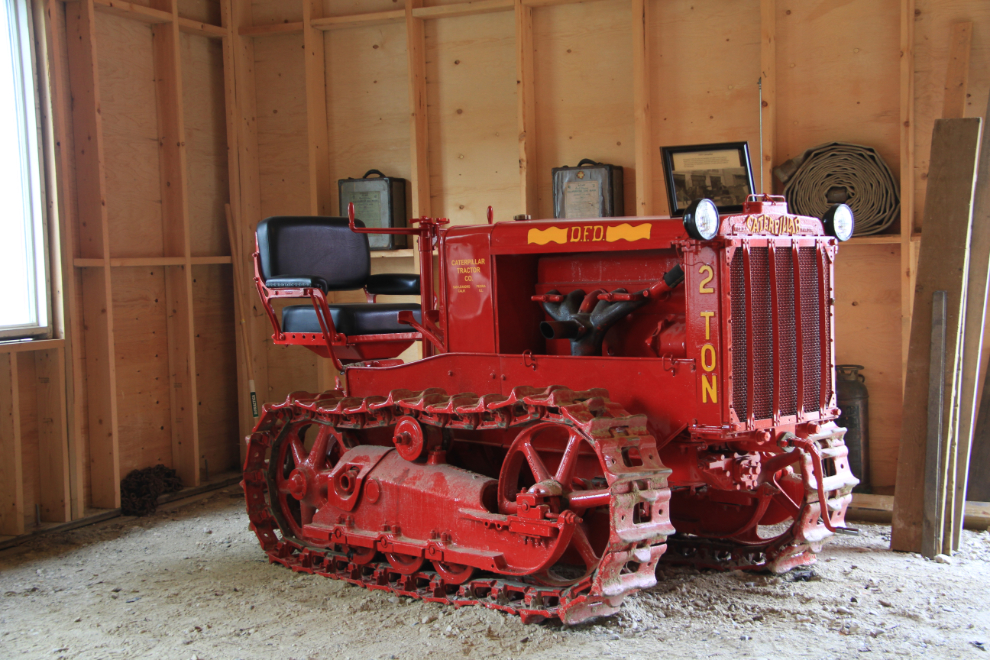
The entrance to the main part of the tiny museum is guarded by a 1927 International 2.5 Ton Speed Wagon (on the left) and a 1940 Ford Two Ton Pumper.
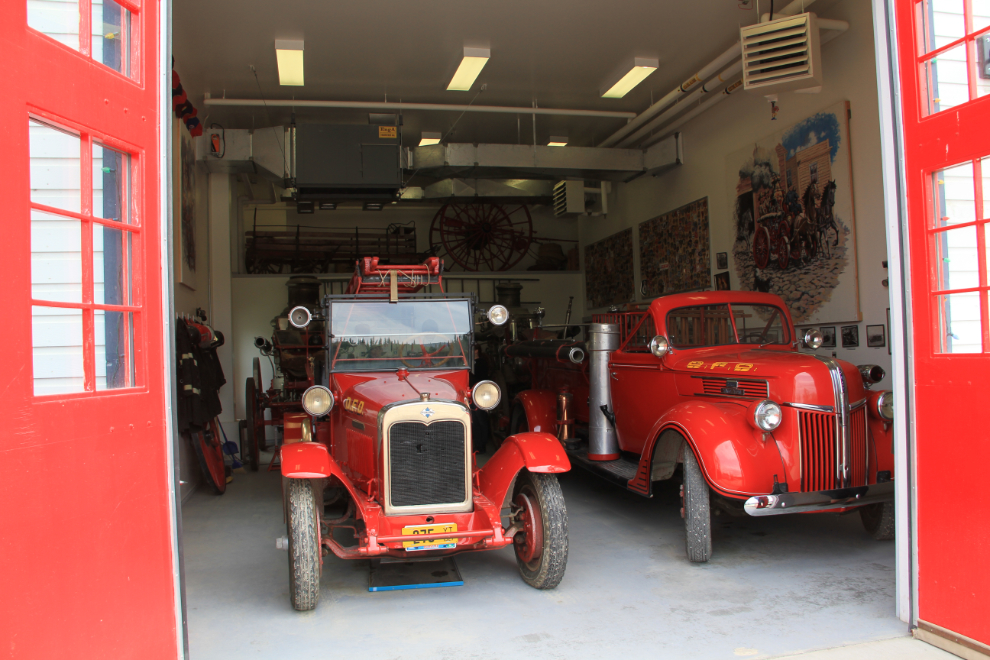
The gems of the museum are certainly the steamers, an 1899 Waterous Steam Pumper and this 1897 Clapp and Jones Fire Steam Pumper.
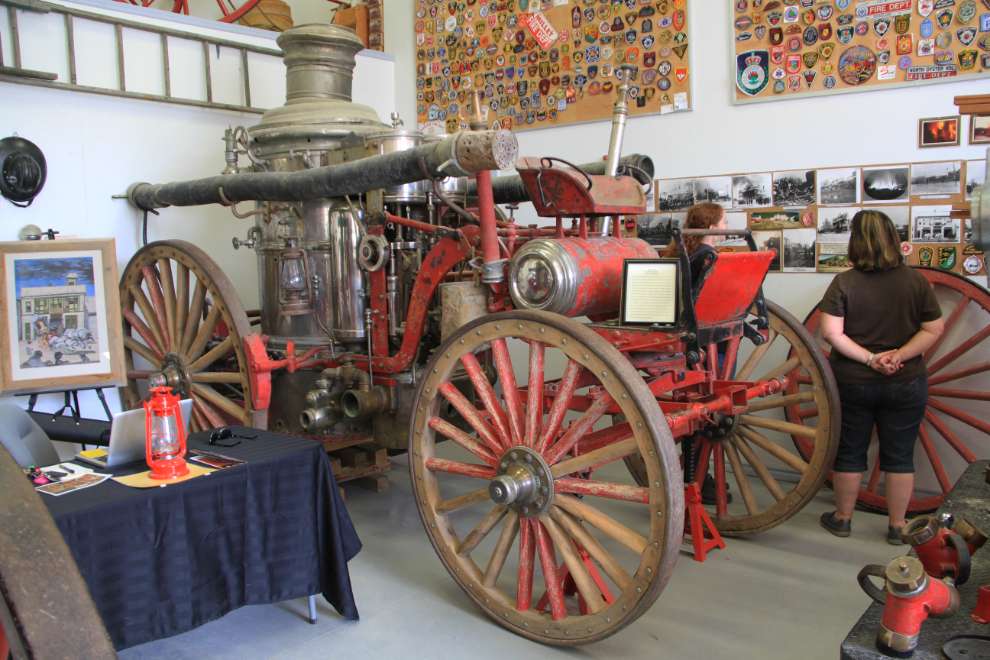
There have many countless fires in Dawson since its founding, and there are many photos of some of them, including particularly significant ones such as the burning of the Commissioner’s Residence on Christmas Day, 1906. We were very impressed by the museum in every regard (admission is by donation), and the interpreter on duty was exceptionally good.
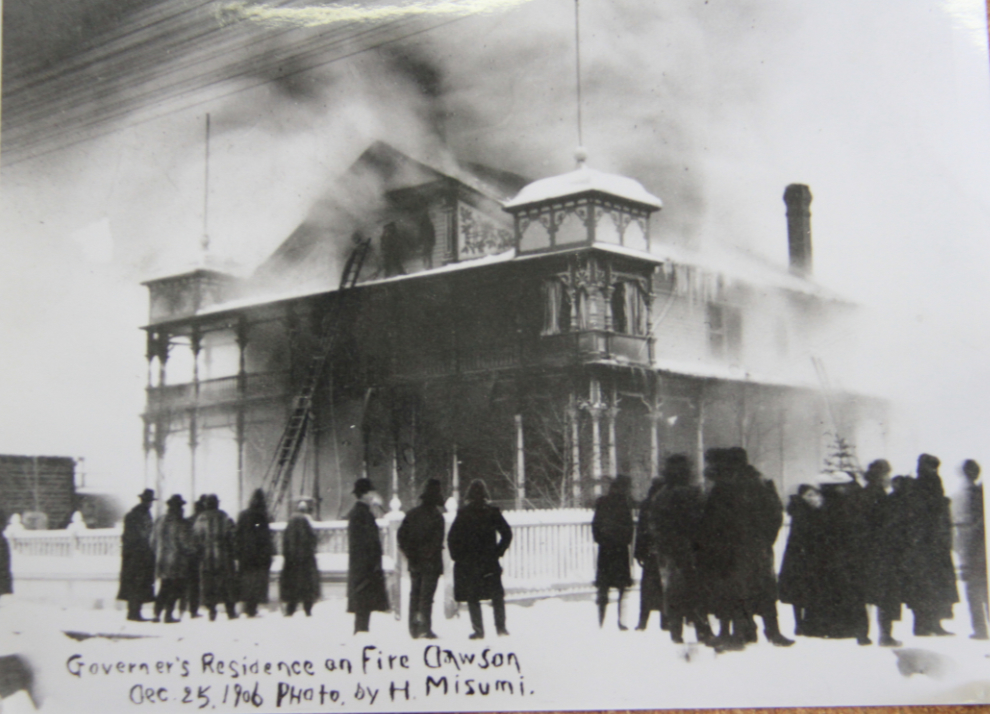
The plan had been to go around and get more stamps in our passport, but after getting stamped at the Dänojà Zho Cultural Centre, we both felt like cheapskates for not spending $7 to tour the museum and didn’t go to any more sites.
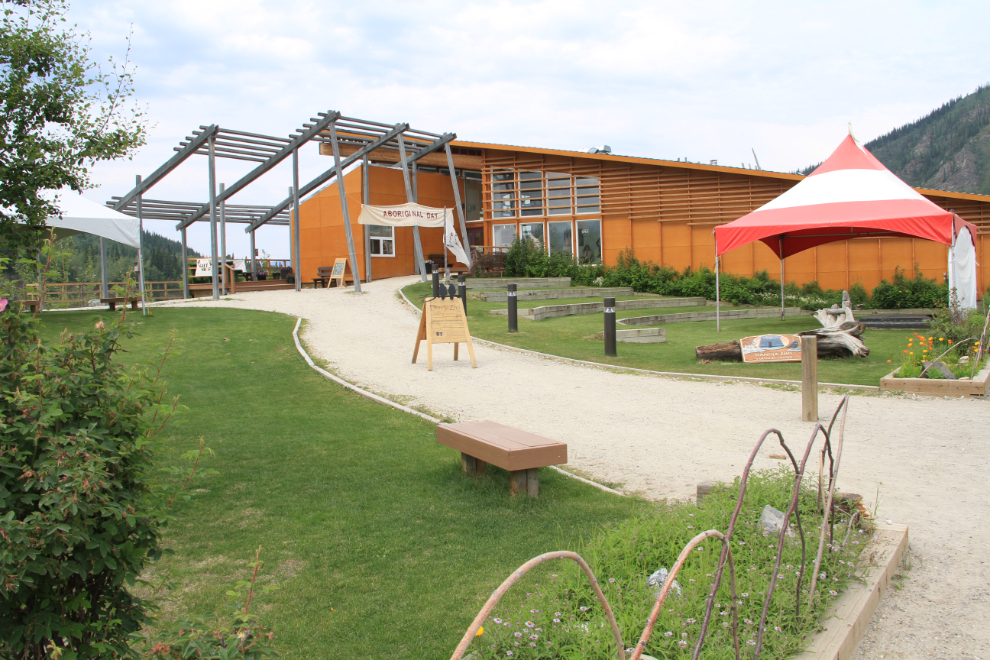
On Wednesday, we spent more time walking around town, took the dogs out of town for a good run, and after lunch, started back towards home, with no firm plans about where to spend one more night on the road.
